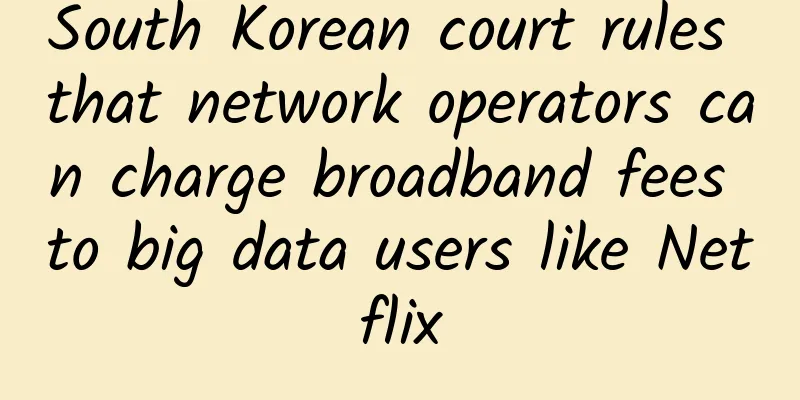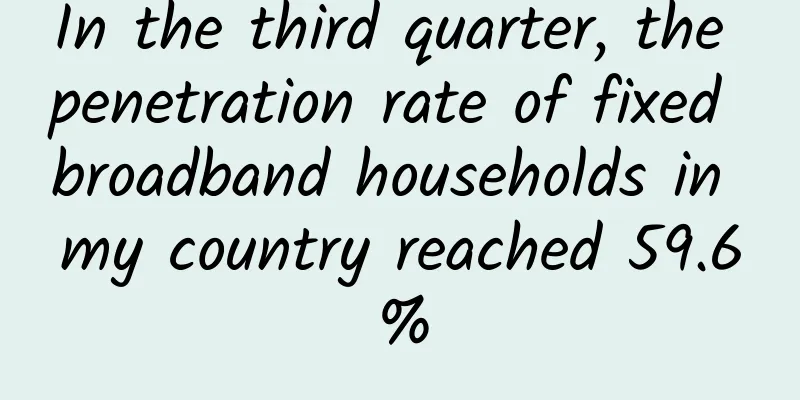South Korean court rules that network operators can charge broadband fees to big data users like Netflix

|
As the video streaming market explodes, a South Korean court has issued a controversial ruling on a case. In 2020, Netflix filed a lawsuit, claiming that South Korean broadband operators had no right to require the platform to pay for users' bandwidth usage. In fact, such a conflict broke out as early as 2014. At that time, ISPs generally complained that streaming services consumed too much bandwidth and asked related companies to pay extra to offset the related costs. (Screenshot via Korean Economic Daily) Streaming sites hit back, saying they were simply fulfilling requests from users who had already paid for the relevant broadband, and that ISPs were trying to "double-charge" them for this. Unfortunately, the Korea Economic Daily points out that the court's latest ruling is not as normative as "you two parties in dispute should figure it out on your own" and fails to protect streamers from the exemptions from such bandwidth fees that they have been fighting for for years. On the other hand, the technical solutions of streaming service providers are indeed somewhat complicated in real-world deployments, and Netflix ultimately pays so-called interconnection fees to facilitate the infrastructure needed to deliver large amounts of data quickly and consistently. Netflix once said that this was essentially a "fast track" surcharge, but in the face of urgent development pressure, they ultimately attributed it to business operating costs. The Korean subsidiary said in a statement that it had not been charged the extra fees claimed by SK Broadband by ISPs elsewhere in the world. It's not clear whether ISPs equate interconnect with caching, or whether these arrangements have changed. We have asked the company for clarification and will update if they respond. Foreign media pointed out that although the problems in the Korean market have not been properly resolved, in the face of huge growth, streaming sites will become increasingly unwilling to pay fees proportional to their development, so the two parties decided to go to court. In the latest ruling, the court believes that "whether a certain fee needs to be paid" is still a matter for the relevant parties to negotiate and decide. For broadband providers, this is obviously a ruling that guarantees a stable income. As for how the subsequent charging standards will change, it is not yet known. However, the Democratic-led Federal Communications Commission (FCC) is likely to push for stronger net neutrality rules. Netflix previously tried to push for the abolition of the fee, but ultimately abandoned the idea. |
<<: Mastering Internet sovereignty in the IPv6 era is a war we cannot afford to lose
>>: China Telecom's Zhang Xin: 5G network co-construction and sharing faces three major challenges
Recommend
HostTheBest: $2.5/month KVM-quad-core/1GB/30G SSD/1Gbps unlimited traffic/Los Angeles data center
HostTheBest's website about page introduces t...
Network | Not the best, will 5G abandon TCP/IP?
TCP/IP is considered suboptimal for more advanced...
How will 5G impact AR and VR?
There has been a lot of discussion about the evol...
Ministry of Industry and Information Technology: my country has built and put into operation a total of 1.425 million 5G base stations
At 10 a.m. on January 20, 2022, the State Council...
Talk丨Can positioning become a new growth point for LoRa technology?
First, an example: If you and your good friend ma...
Several secrets to protect cabling in green data centers
At present, the degree of enterprise informatizat...
Facing these possible accidents, is your operation and maintenance team ready?
With a loud bang, the data center collapsed The d...
DediPath Independence Day Promotion: 40% off all VPS hosts, New York dedicated servers starting from $35/month
DediPath launched a US Independence Day promotion...
VMISS newly launched Korean VPS with 30% discount, 1G memory package starts from 3.5 Canadian dollars (≈ RMB 18) per month
In May this year, we shared information about VMI...
What impact will the Internet of Things have on corporate business?
Nowadays, whether people like it or not, the Inte...
Who "raped" my network? Most likely it was the operator who "played rogue"!
Since I became the editor of the wireless network...
How 5G will change your LAN security
The Local Area Network (LAN) as we know it today ...
First-line SASE escorts edge AI
When data sharing and circulation become a rigid ...
Innovation improves people's livelihood, H3C's public rental housing smart door lock solution won the 2020 World Internet of Things Expo Award
Recently, the public rental housing smart door lo...
5 Mac software that are so useful that you don't want to share them, each of them is a representative of black technology
[[385059]] I have shared a lot of Windows compute...









